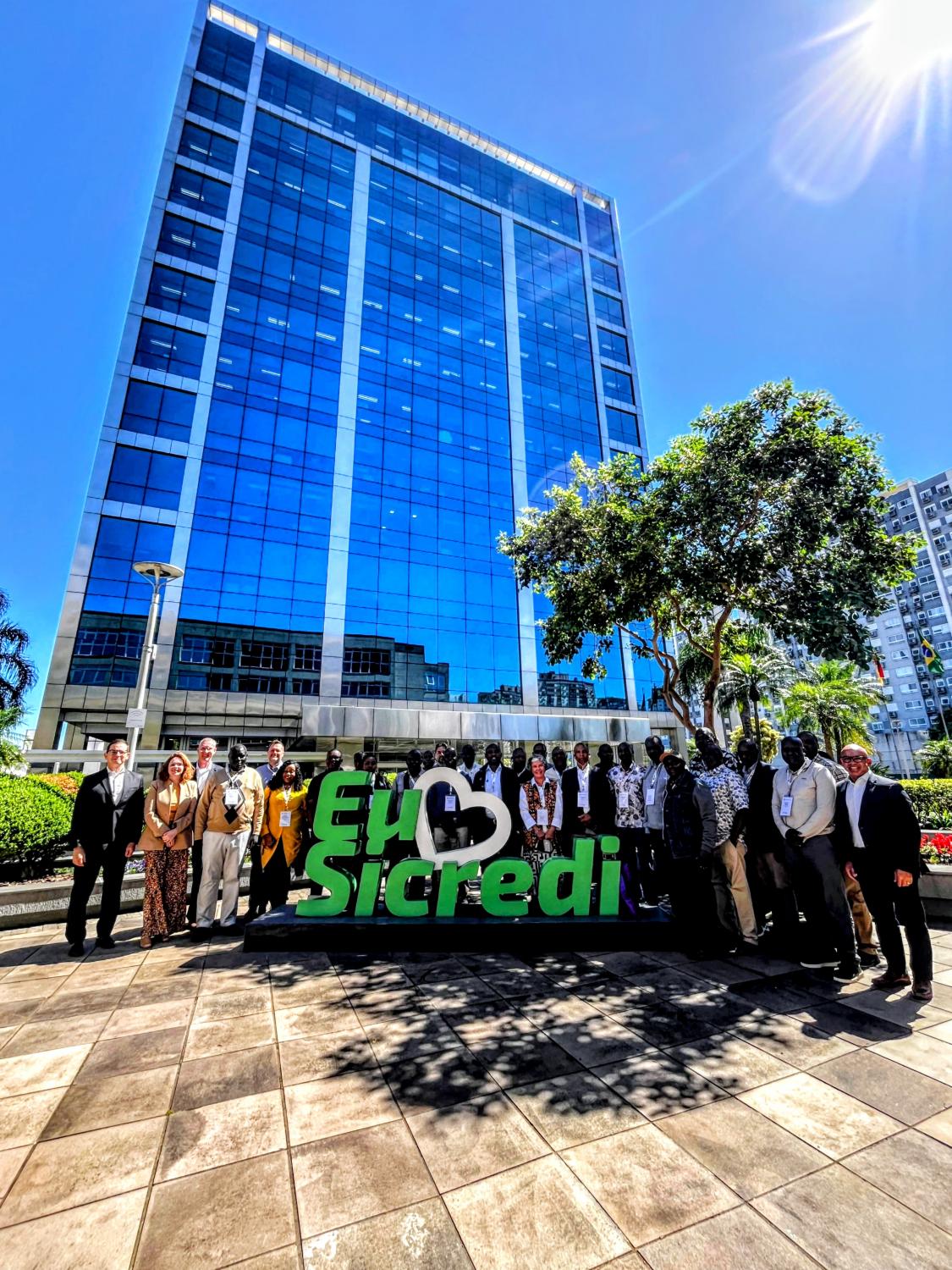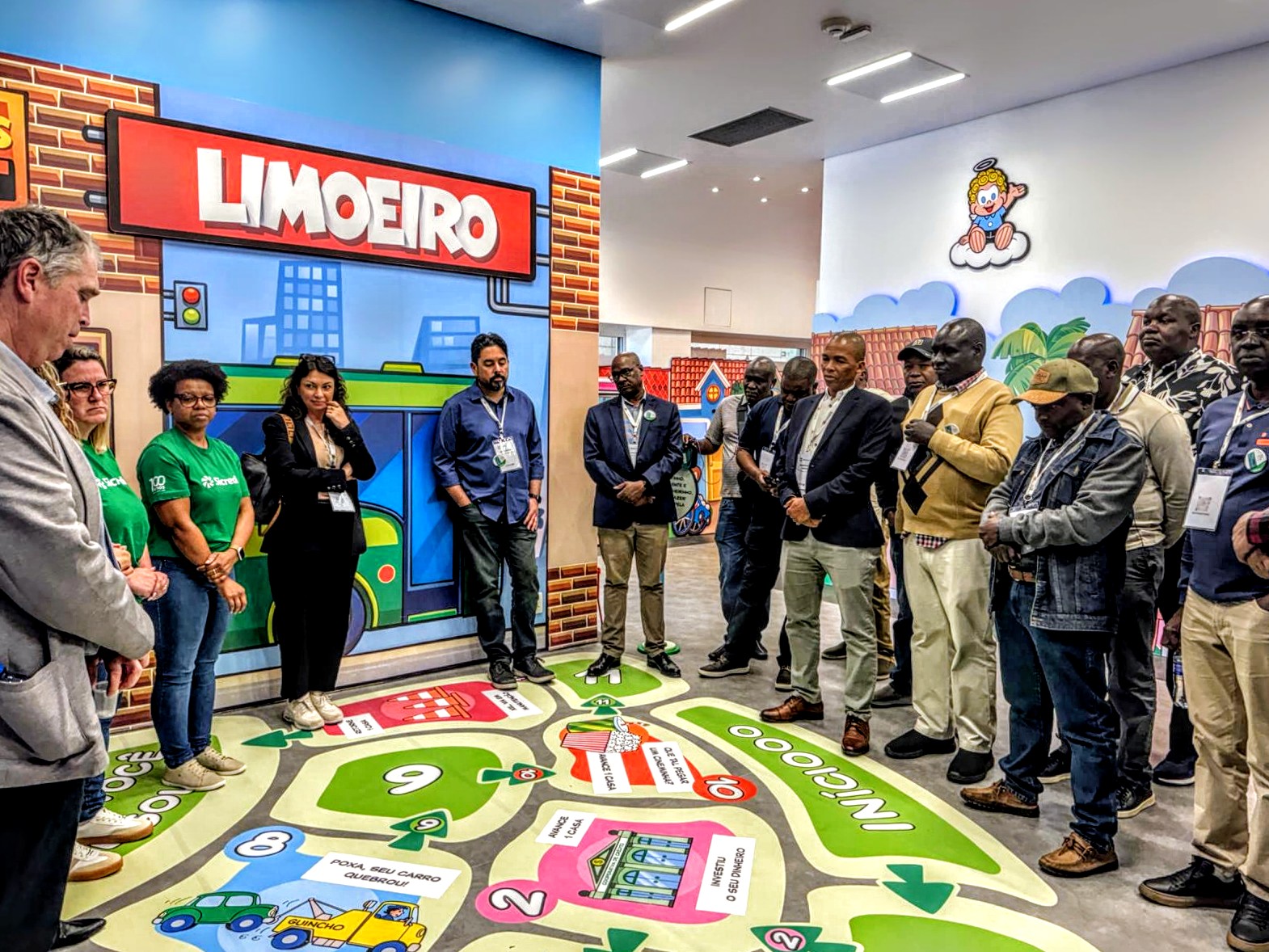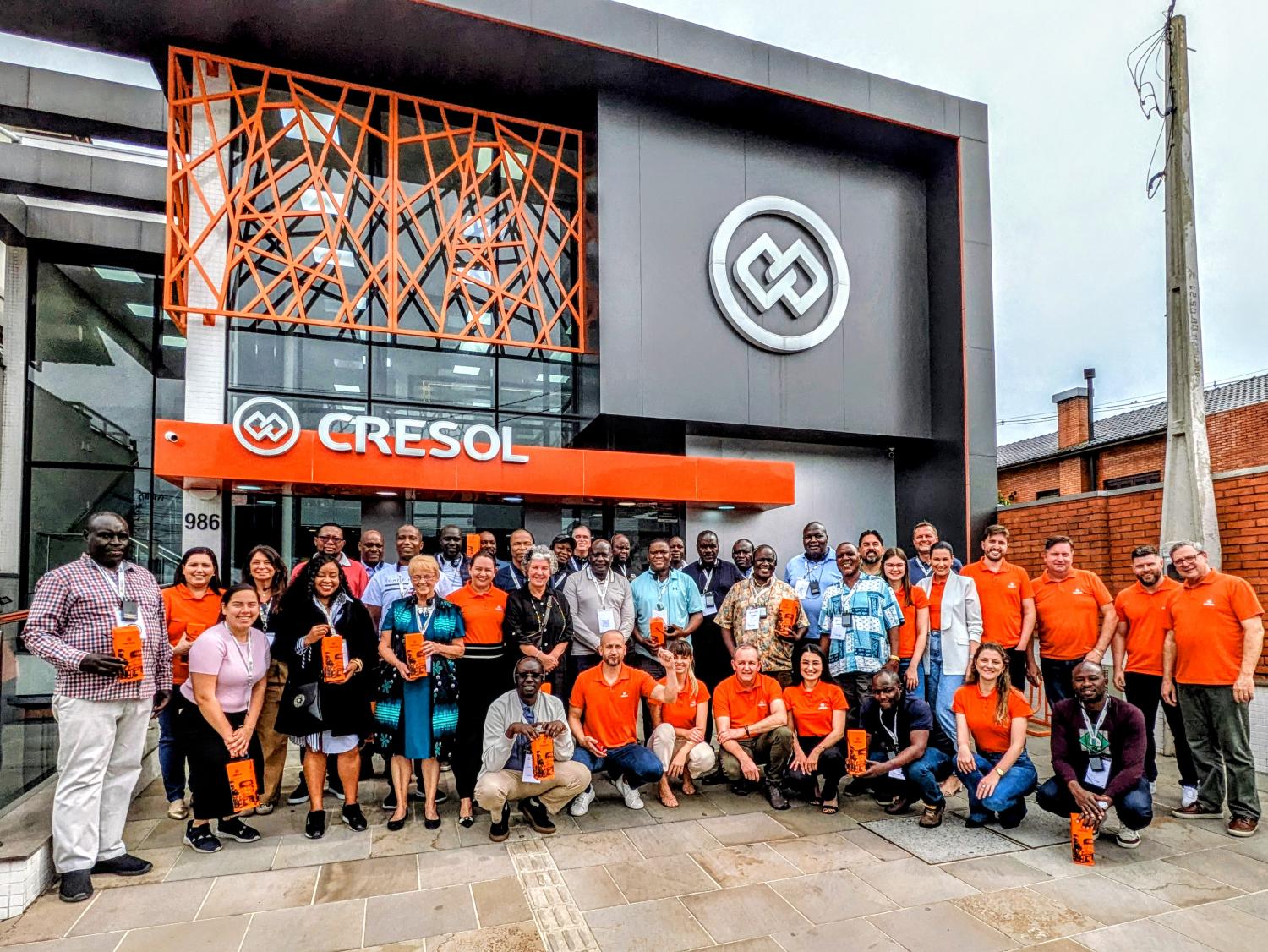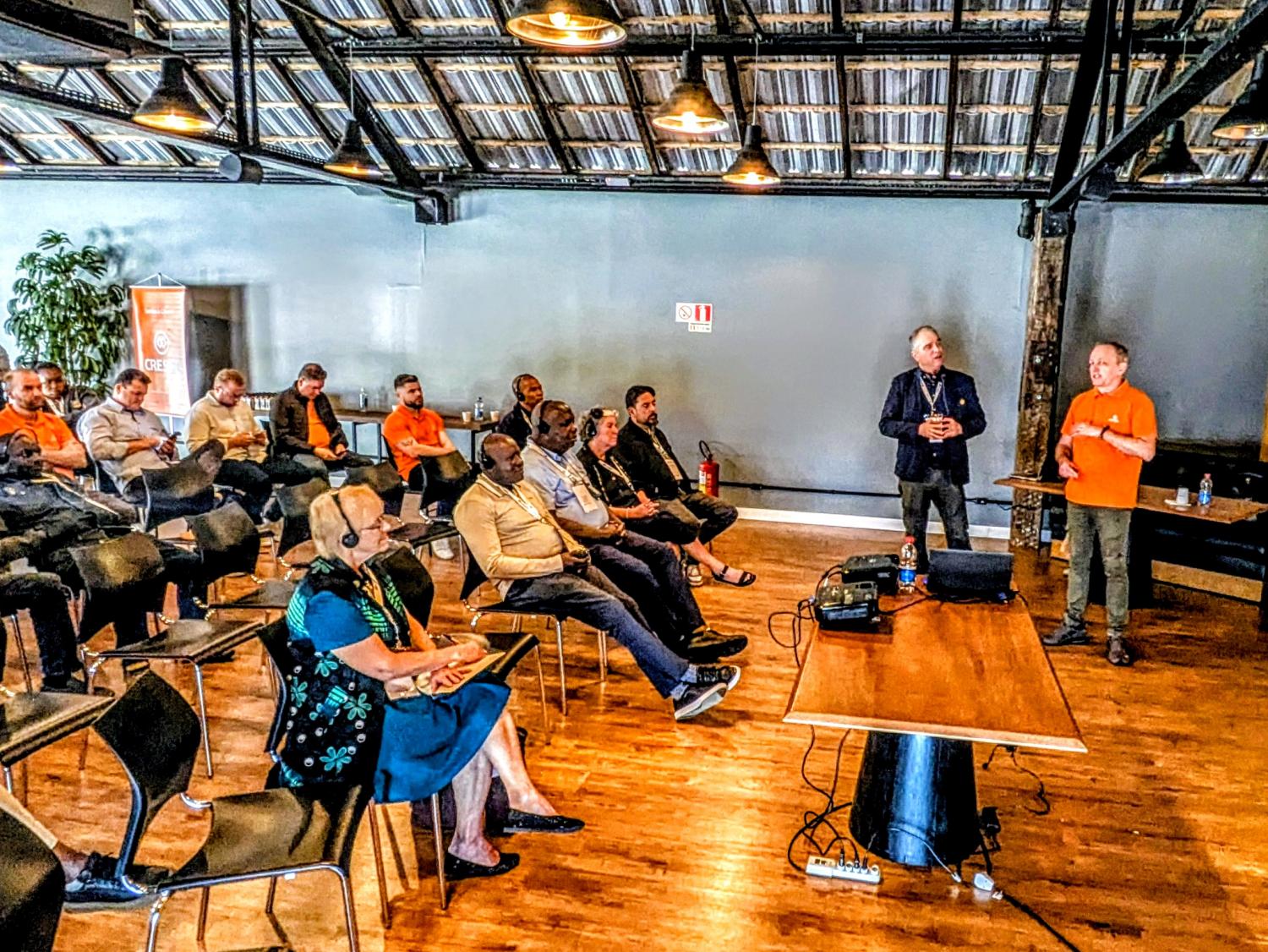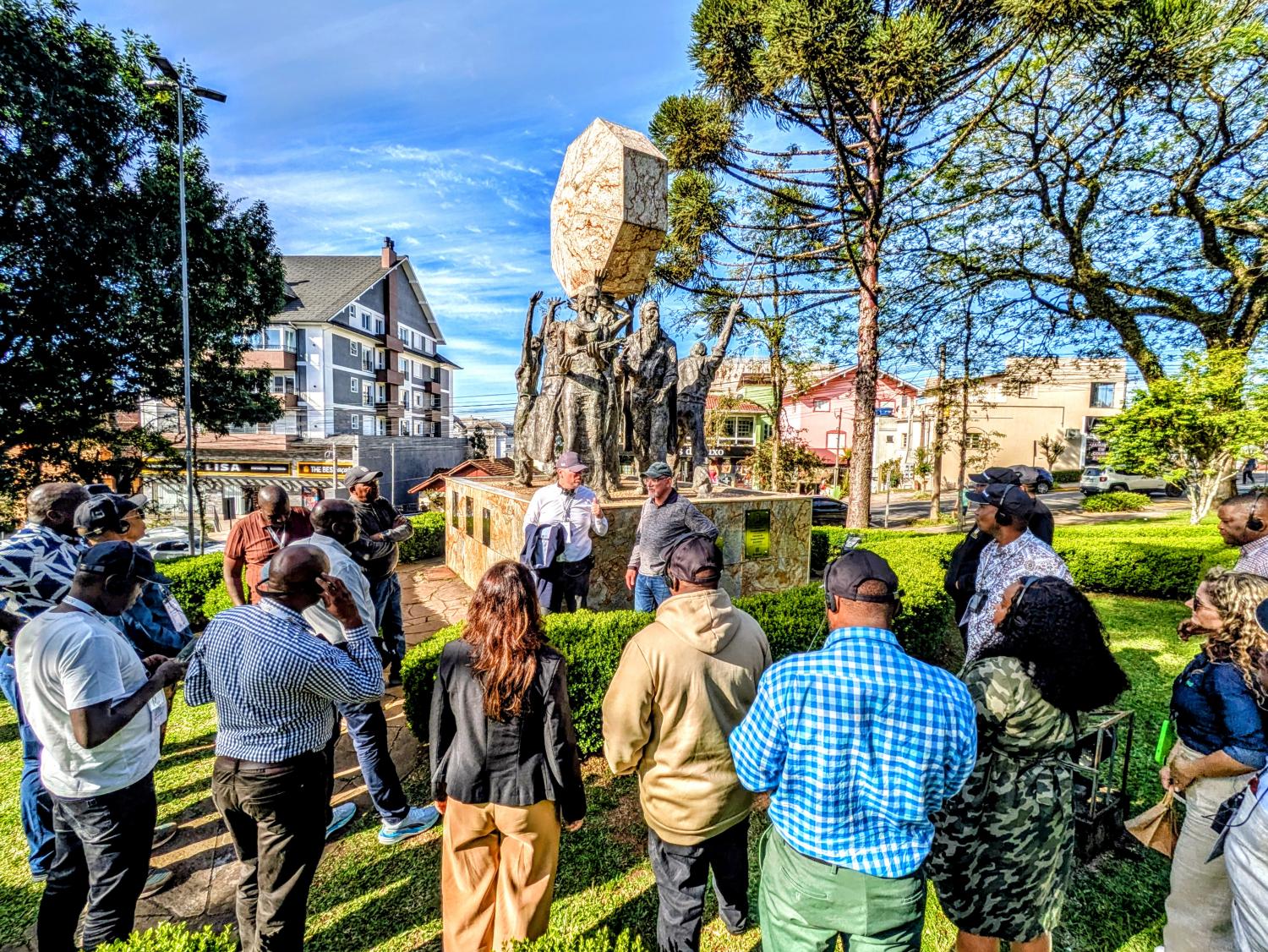Building Bridges, Growing Together: Global Lessons from Brazil’s Cooperative Movement
2025-11-18In the rolling hills of Rio Grande do Sul, our international delegation discovered something special. We witnessed the strength that emerges when cooperatives share ideas, combine experience, and build bridges across continents. It was a reminder of what becomes possible when cooperatives choose collaboration over competition — and how shared service models can unlock growth, inclusion, and resilience across borders.
World Council’s (WOCCU) collaboration with the African Confederation of Co-operative Savings and Credit Associations (ACCOSCA) brought together leadership from Kenya, Botswana and the United States to demonstrate exactly why our role as a global bridge between financial cooperatives matters so deeply. By connecting systems that might never otherwise cross paths, we create opportunities to learn from shared challenges, explore innovative solutions, and grow stronger together.
Brazil’s cooperative system has long been shaped by this spirit. The legacy of Theodor Amstad, who helped establish the first credit unions in southern Brazil, still echoes today. His belief that communities could prosper by pooling resources and working together continues to guide Sicredi and Cresol — two of the most dynamic cooperative networks in the world and the hosts of our exchange.
Shared Service Models: Cooperation at Scale
One of the strongest lessons from Sicredi and Cresol is the sheer power of shared service models. By pooling critical functions — IT, auditing, HR, compliance, marketing — these networks allow local cooperatives to focus on what matters most: serving their members and strengthening their communities.
Shared service structures like those at Sicredi and Cresol show how cooperation can become a strategic engine for innovation. For our delegation — including leaders from three of Africa’s largest SACCOs — this was a powerful example of what becomes possible when systems align behind common goals. It illustrated that collaboration is not simply a response to constraints, but a proven pathway to modernization and long-term strength.
Moments like this show why WOCCU’s global network matters. When cooperatives learn from one another, insights don’t stay local — they travel, evolve, and help lift entire systems elsewhere.
Cooperation Beyond Finance: Supporting Wine and Dairy Cooperatives
Our visit with Cresol revealed another powerful truth: financial cooperatives don’t just serve members — they help entire ecosystems thrive.
Cresol’s close partnerships with local wine and dairy cooperatives showcased how deep collaboration can strengthen rural economies. By understanding the financial rhythms of these sectors, Cresol has created tailored products that support production cycles, modernization, and long-term sustainability. These are real examples of cooperative finance enabling cooperative enterprise — a circular economy rooted in trust.
For our international delegates, the examples from Sicredi and Cresol sparked new thinking about how cooperatives can fuel local enterprise. Seeing how Brazilian cooperatives pair financial education with entrepreneurial support opened fresh possibilities for empowering members, strengthening value chains, and driving broader economic development in their own communities.
This is the kind of cross-pollination WOCCU exists to foster — bringing global experience into local context, and ensuring that solutions born in one region can strengthen systems everywhere.
Keeping Youth on the Land: Empowering the Next Generation
Both Sicredi and Cresol shared a commitment that resonated deeply with everyone in the room: helping young people stay on their family farms and build dignified futures in rural communities.
We saw firsthand how these cooperatives nurture an entrepreneurial mindset among young people. Through a mix of financial education, mentorship, and practical support, they are empowering youth to develop their ideas, take on leadership roles, and build new sources of economic opportunity within their communities. By strengthening financial capability and supporting early-stage enterprise, they are helping young people envision — and create — sustainable futures rooted in their own local economies.
This is cooperative impact at its most human — enabling the next generation to write their own story without leaving their roots behind.
And once again, WOCCU plays a key role in bringing these models to the global stage, helping youth programs in one region inspire similar initiatives elsewhere.
Technology, Inclusion, and the Road Ahead
We also explored how technology is expanding the reach of cooperative finance. Whether through digital onboarding, mobile banking solutions, or data systems that help tailor services to local needs, Sicredi and Cresol are using innovation to close gaps and bring more people into the financial mainstream. Their efforts show that inclusion is not a slogan; it is a design principle.
For many in the ACCOSCA delegation, the insights from Brazil reinforced just how critical comprehensive digital transformation has become across Africa. Simplifying processes, automating routine functions, and using technology to deepen member engagement are no longer optional — they are essential for sustainable growth. The visit underscored a central truth for WOCCU: when innovation is openly shared across borders, the entire cooperative movement moves forward together.
A Shared Future
The most powerful takeaway from this exchange was simple: when cooperatives collaborate, members win. Whether through shared services, joint learning, sector partnerships, youth engagement, or cross-border exchanges, the cooperative model thrives on connection.
What we experienced in Rio Grande do Sul was a vision of what global cooperation can achieve — a reminder that credit unions around the world face similar challenges and can benefit from each other’s innovations. The solutions developed in Brazil can spark progress in Africa, just as lessons from Africa can inform future strategies in Latin America, Asia, or beyond.
And standing between these journeys is WOCCU — a global bridge helping financial cooperatives learn from each other, grow together, and build a stronger, more inclusive movement for the future.
